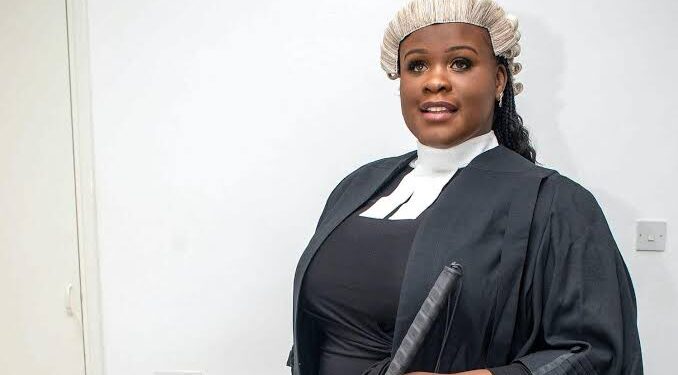Being the first blind and black female lawyer in the UK, Jessikah Inaba has made history. She passed the bar exam last week after completing the entire course in Braille during her five years at a university in London.
No other blind and black female barrister could be identified by any of the numerous legal organisations in the UK, including the four Inns of Court, the Bar Council, or the Bar Standards Board.
The 23-year-old told the Times: “I believe I can perform this work well, and the more individuals like me that go through training, the easier it will become. I am aware that my example inspires others facing comparable challenges.
What is Inaba’s health, who is she, and how did she study for her exams?
Who is Jessikah Inaba?
Inaba is the first black and blind female barrister from London. During her formative years, she lived in Lewisham before moving to Camden.
She attended neighbourhood schools and a high school in Surrey, both of which provide services for children with vision impairments.
Inaba started studying law in September 2017, and two years later, she also enrolled in a professional development course and a Master’s programme.
What illness does Jessikah Inaba suffer from?
Because of her bilateral microphthalmia, Inaba was born with smaller-than-average eyes.
According to Moorfields Eye Hospital, most instances are accidental, and the cause isn’t always clear.
It may be brought on by genetic alterations, which would explain why your mouth or other facial features, such as your eye, didn’t develop properly.
Jessikah Inaba’s method of exam preparation.
After earning her legal degree from Surrey, Inaba created her own Braille materials using course notes or readings from friends.
Braille can be read using a screen that typically displays one line at a time or from specially printed books.
She said it took five months and seven months, respectively, for one of her two essential study texts to arrive at the University of Law Bloomsbury in central London so she could read it on her computer.
Also, she said that her Braille screen missed a significant amount of information due to the books’ illustrations and tables.
The London solicitor uses the Braille keyboard in court to manually read and amend documents while participating in proceedings.
Now that applications are available in January, she intends to apply for a pupillage, a first-chamber post for recently trained barristers.
“The ceiling is made of triple-glazed glass. I have a disability; I’m not the most common gender or colour, but by continuing, I’m making it easier for the next person who is like me,” she continued.










